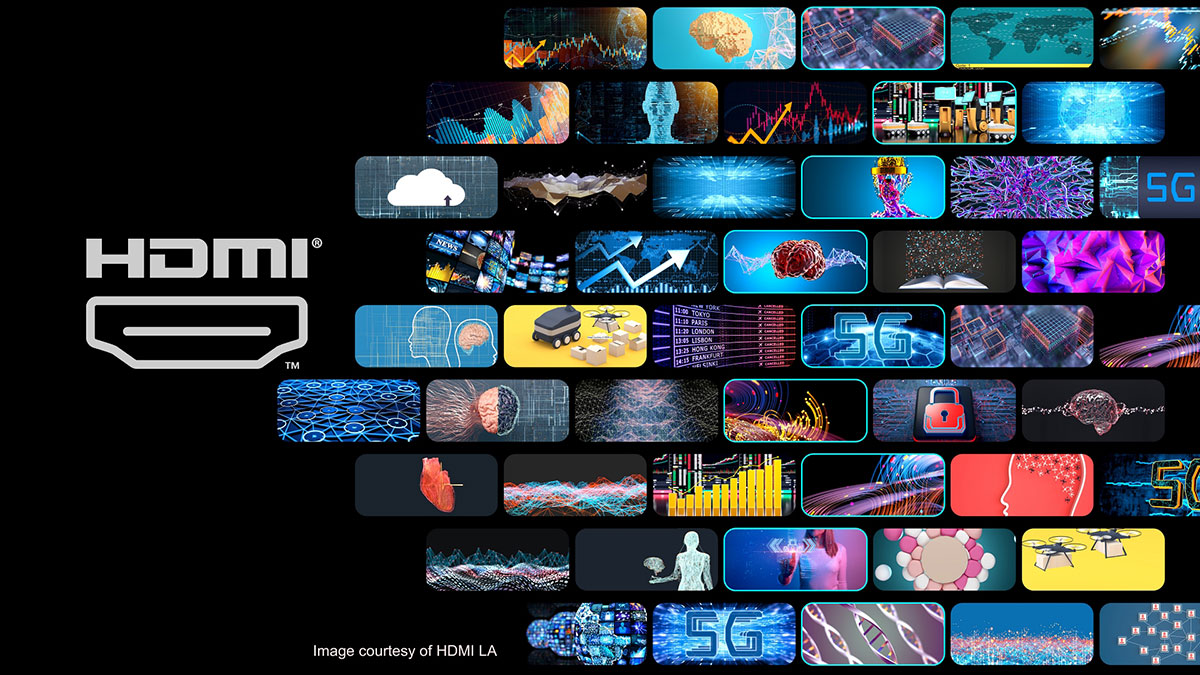
After more than 40 years of operation, DTVE is closing its doors and our website will no longer be updated daily. Thank you for all of your support.
Set-top Box Providers’ Top Two HDMI Questions – Licensed Products and EMI
 It’s been almost 20 years since the first HDMI Specification was introduced. Here are the two most common HDMI questions asked by companies specifying HDMI-enabled equipment and set-top box installations according to HDMI Adopters and resellers.
It’s been almost 20 years since the first HDMI Specification was introduced. Here are the two most common HDMI questions asked by companies specifying HDMI-enabled equipment and set-top box installations according to HDMI Adopters and resellers.
What is a licensed product and how do I tell if a product is licensed?
A licensed product is produced by a manufacturer that is an official HDMI® Adopter and has access to the current HDMI Specifications; and can claim compliance to the HDMI Specifications if their products are tested and certified at either an HDMI Authorized Test Center (ATC), or for HDMI 2.1 products, an HDMI Forum ATC. Adopters are listed on the HDMI.org website so you can always check a manufacturer’s status. The challenge in identifying a licensed product can be difficult because in many cases end-users buy a product not directly from an HDMI Adopter, but from the adopter’s branded reseller. If you buy from an adopter, they can simply show you their HDMI Adopter Certificate which has a unique QR code that you can scan and displays the HDMI.org website adopter listing for verification. You can also ask to see the ATC Certificate for the product.
However, if you don’t buy adopter-direct, you should still ask to see the certificates but note that a reseller may not want to reveal the identity of their supplier and won’t show you the certificates. There’s nothing wrong with that, it’s standard business practice for many. But you should always ask them to assure you as part of your requirements and terms and conditions that they only source from licensed manufacturers and that all the products are compliant to the specification and are tested and certified by an ATC. With some HDMI® Cables it’s easier as both Premium High Speed and Ultra High Speed HDMI Cables are required to display a physical anti-counterfeit certification label on the packaging that only HDMI Adopters can order.
So why is EMI so important in HDMI Cables?
In some cases an HDMI cable can act as an electromagnetic interference (EMI) source and radiate electromagnetic energy that can interfere with other nearby devices. It’s important that HDMI Cables emit very low EMI to reduce the possibility of interference with wireless networks, streaming media players, Bluetooth devices, mobile phones as well as wireless gaming controllers and headphones. Also, other devices can emit EMI which can interfere with inadequately shielded HDMI cables and affect cable signal performance. Excessive EMI can occur along the cable but is most often an issue where the cable and connector join. There are a variety of design and construction variables at play there such as the connector, pigtails, shielding, soldering methodology and solder materials, and line quality control. If there is an issue with cable EMI it can be exacerbated if HDMI ports are placed side-by-side on a device; and if multiple ports are active at the same time as is the case in many commercial applications, the collective EMI can affect the individual cables as well as nearby wireless devices.
It’s important that only licensed HDMI Cables manufactured by HDMI Adopters and available by Authorized Resellers are used as they are compliant to the HDMI Specifications. Premium High Speed HDMI® Cables are required to pass EMI tests that utilize EMI test equipment designed specifically for the Premium Program. And low EMI is a priority for the latest Ultra High Speed HDMI® Cable, supported in both the HDMI 2.1 Specification and Compliance Test Specification, making it necessary to test those cables in specialized EMI testing laboratory chambers constructed to meet industry requirements, and resulting in Ultra High Speed HDMI Cables exceeding requirements of the latest international EMI standards.
And remember that field termination results in a non-compliant HDMI product as that cable has not been tested and certified as a complete unit.
For more information: www.hdmi.org
The Adopted Trademarks HDMI, High-Definition Multimedia Interface, Ultra High Speed HDMI, Premium High Speed HDMI, and the HDMI Logo are trademarks or registered trademarks of HDMI Licensing Administrator, Inc.
This is sponsored content

